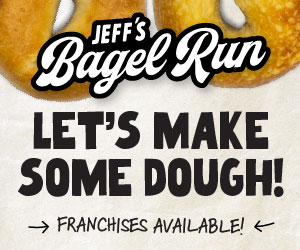The Franchise Buying Process - and FDD - Need Reform
We're going to say something here that at first blush may seem to be complete heresy to advocates of business format franchising: the process of selecting a franchise often can fail. It's not the franchise itself that may flunk; it's the regulatory and due diligence components of the buying process that may miss the mark. In this article, we explore the shortcomings of the franchise regulatory process.
The regulatory process
The regulatory framework for franchising in the United States is somewhat out of date, as it is structured around a formula-driven disclosure document, the FDD, which contains 22 disclosure items and a receipt. The current FDD format and content goes back to the 1960s, before personal computers were common, before the Internet, and before franchising matured. Over time there have been relatively minor changes to the format of the FDD. The most recent changes took place in 2007, and many believe those changes actually weakened disclosure. The current FDD falls short of meeting the needs of the first-time franchisees and franchisors in general, and its weakness is a root cause of much of the proposed regulatory fixes we have seen lately.
Franchisors are required to follow a fairly precise, uniform set of rules on how to inform prospective franchisees about their opportunity. In some states, for better or worse, franchisors must first present their documents for review and approval to regulators. The regulatory process can be very positive, but it also has serious limitations as franchisors often have to limit disclosure to meet the uncertainty and lack of uniformity of the state regulatory review process. For example, it's unlawful to "fail to include the information and follow the instructions for preparing" FDDs, and we are limited by the bulk-up provisions limiting information that might yield the best available disclosure for prospective franchisees.
Limitations of the FDD process
Let's take a few examples that illustrate how the FDD regime can fall short on its implicit promise of full disclosure.
Foremost among the instances of the FDD's information gaps is the muddle that constitutes the fees and estimated initial investment disclosures of Items 5 through 7. While you will learn a lot about the cost of investing in a franchise through these disclosures, you will certainly not learn what may be most significant to a prospective franchisee: the total investment. That's because Item 7 gives you only a partial picture of your start-up costs.
The information probably most important to prospective franchisees--historical or projected earnings data--also may be lacking, as Item 19 (Financial Performance Representation) is a voluntary disclosure. Subject to very limited exceptions, if franchisors opt out of Item 19, they are prohibited from disclosing any earnings information to prospective franchisees; there may be solid reasons not to provide such disclosures. In an information world with data of every sort (accurate and inaccurate) available 24/7, did the regulators somehow believe that prospective franchisees would not marry up unit cost data with unit sales data from the Internet and reach potentially inaccurate or misleading conclusions?
The shortcomings of FDD disclosure reside primarily in its one-size-fits-all framework. Most reasonable people probably would agree that a freshly launched franchise presents different challenges than those faced by a seasoned brand. Also, information needed by a single-unit franchisee making an investment decision is substantially different from that required by a sophisticated multi-unit developer. Still, the required disclosure is precisely the same for everyone.
What may make more sense is blending some elements of a tiered disclosure, in which franchisors might include a "principles-based approach" that permits some amount of discretion with respect to disclosure (in addition to the 22 specified areas). Rather than adhering mechanically to an inflexible set of rules, franchisors could instead rely on a road map for added disclosure composed of key disclosure objectives, guidance explaining the objectives, and some common examples that illustrate that guidance.
Under a blended approach that includes a principles-based disclosure component, franchisors and their counsel likely will have a greater challenge in crafting good disclosure, but the process will evolve over time. But many franchisors (and franchise attorneys) currently view the task of drafting disclosure as following a cookbook. Enhancing disclosure would enable franchisors, and not simply regulators, to decide what additional information is important and how best to present that information for the benefit of prospective franchisees.
The general approach to franchise disclosure needs to be revisited with a goal of improving clarity and understanding of the offering for the benefit of both the franchisor and the franchisee. Given the maturation of franchising, market forces will certainly need to drive the changes needed.
Michael Seid is the founder and managing director of MSA Worldwide, a consulting firm specializing in franchising and other methods of downstream distribution. He is on the board of the IFA. For more information on MSA's services, including speaking or consulting services, call 860-523-4257, send an email to [email protected], or go to www.msaworldwide.com.
Mike Sheehan, a franchise consultant and attorney, is president of Focus Ventures. He formerly served as a securities attorney and as general counsel for a Fortune 100 financial services company. His Franchise Focus Blog (www.franchisefocus.blogspot.com) focuses on helpful information, tips, and current news for prospective franchisees. For more, visit www.focusonfranchise.com.
Share this Feature
Recommended Reading:
| ADVERTISE | SPONSORED CONTENT |
FRANCHISE TOPICS
- Multi-Unit Franchising
- Get Started in Franchising
- Franchise Growth
- Franchise Operations
- Open New Units
- Franchise Leadership
- Franchise Marketing
- Technology
- Franchise Law
- Franchise Awards
- Franchise Rankings
- Franchise Trends
- Franchise Development
- Featured Franchise Stories
| ADVERTISE | SPONSORED CONTENT |








 The franchise listed above are not related to or endorsed by Franchise Update or Franchise Update Media Group. We are not engaged in, supporting, or endorsing any specific franchise, business opportunity, company or individual. No statement in this site is to be construed as a recommendation. We encourage prospective franchise buyers to perform extensive due diligence when considering a franchise opportunity.
The franchise listed above are not related to or endorsed by Franchise Update or Franchise Update Media Group. We are not engaged in, supporting, or endorsing any specific franchise, business opportunity, company or individual. No statement in this site is to be construed as a recommendation. We encourage prospective franchise buyers to perform extensive due diligence when considering a franchise opportunity.